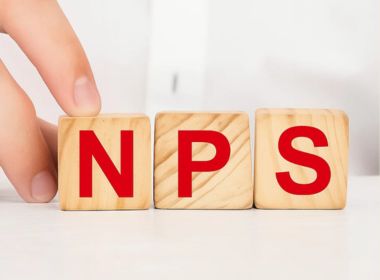Search Suggestions
- Gold Loan
- Money Transfer
- Mutual Funds

What is CIF Number: CIF Number Meaning, Full Form & How to Get It
Bank accounts and banking are almost a necessity in modern times. From offering you an avenue to keep your money safe to providing financial assistance and services to support wealth building, banks play many roles today. At a bank, you can open a checking, salary, or savings account; you can apply for a loan when you are in need of capital; grow your savings by opting for Fixed Deposit or Recurring Deposit schemes; and much more. However, for you to be able to leverage the best benefits of the various opportunities available in the sector, you need to understand the basics of banking; and this includes general knowledge about the terminology used as well.
Table of Content
- The Full Form of CIF?
- What is a CIF Number?
- What is the Use of the CIF Number?
- How to Find Your CIF Number?
- Is the CIF Number Supposed to be Confidential?
One such common concept in banking that you must have heard of at some point or the other and one that everyone should be aware of is the CIF. But the question that arises is – What is a CIF number? What does this number signify? How is it used? What is the full form of CIF? How to get your CIF number? And much more
To help unravel the uncertainty and doubts, here is a basic guide to explain CIFs and CIF numbers, their importance, and much more.
The Full Form of CIF?
Before getting into what a CIF number is, you need to understand CIFs, and like any explanation, it’s best to start with the full form of CIF.
CIF is an acronym that stands for “Customer Information File”. A bank has a wide customer base and maintaining customer records efficiently, while also allowing easy accessibility to bank employees, can get very cumbersome with a huge number of customers. This is where the CIF and CIF no. come into play. A Customer Information File is an electronic file that contains all the important information about a particular customer, including their personal and account details. As the full form of CIF suggests, the file consolidates a lot of information, including the purchase history of the customer, account balances, credit score, past transaction history of their account(s), account owner details, type of account(s), credit relationship (if any) with the bank, loan history with the bank, Demat account details, and even the KYC information of the customer, like their address, ID information, contact details, Photo ID evidence, and their signature. These files are stored on the bank’s server and provide a comprehensive summary of how a customer has interacted with the bank in the past.
Grow Your Business with our Corporate Loan
The Growing Applications of CIFs
Traditionally, CIFs have always been associated with the banking industry, however, with big data and the easy connectivity of modern times, many businesses that deal with a lot of customer-related information have started realising the benefits of using CIFs. For businesses, CIFs also form a part of their Customer Relationship Management (CRM), wherein they are utilised for creating strategies for customer-relationship maintenance and improvement.
What is a CIF Number?
When bank employees ask for a CIF number, they mean the unique number that is given to customers and is used by the bank to track and decode the customer’s CIF. While your CIF number is means to an end, its format is not fixed and varies from bank to bank. While one bank may have a 4-digit CIF, another may have a 10- or 11-digit CIF.
Earlier, every account held by a customer had a separate CIF no., but with time, the process has been streamlined and now banks give each customer only one unique CIF number. This means that even if a person has multiple bank accounts, loan accounts, or credit relationships with a bank, they will have only one CIF number and one CIF, which will have complete details of all their dealings with the bank.
What is the Use of the CIF Number?
Technological advancements have made it very easy to maintain customer information, removing the need for maintaining physical records. CIFs help reduce maintenance costs as companies and financial institutions no longer need physical space or and extra workforce, specifically dedicated to maintain customer records and physical files/documents.
As a CIF easily and efficiently provides all transaction details and a summary of the account holder’s activities in one place, it helps avoid confusion and also helps reduce the risk of fraud when sanctioning a loan. While the CIF number is not used in money transfers, it plays a significant role in the disbursal of other banking services, like identity verification for activating mobile or net banking, checking your eligibility for a loan, etc.
How to Find Your CIF Number?
For finding out what your CIF number is, you have various options:
Online
- Net Banking: Open your bank’s website and log into your account. Open an e-statement from any month. You will need to select a time period for the e-statement, which you can choose as per your preference. As the CIF no. is considered to be basic customer information, it will be displayed on the account summary page of the e-statement.
- Using a Banking App: Most major banks now have mobile apps to offer their customers easy access to services. This means that your CIF number, along with your other banking information, is readily available on your bank’s mobile app. All you need to do is log in to the app and check your profile or account details.
Offline
- Passbook: You will find your CIF no. displayed on the first page of your Account Passbook.
- Chequebook: Just like the passbook, you can find your CIF number on the first page of your chequebook. The CIF number is however NOT printed on the cheques, which only include the IFSC, MICR, and cheque number.
- Customer Care: You can call your bank’s customer support centre for information regarding your CIF number. You will have to provide some basic details, like account number, date of birth, etc. to confirm your identity, after which your CIF number will be shared with you.
- FD Certificate: If you have an FD with the bank, you will receive an FD Certificate, on which your CIF number will be mentioned next to your name.
Grow Your Business with our Small Business Loan
If you are unable to find your CIF number using the above-mentioned ways, you can simply head over to the nearest branch of your bank with relevant ID proofs or get in touch with the manager of your branch for the same.
Is the CIF Number Supposed to be Confidential?
It is safe to share your CIF number with bank employees when asked. It is in fact often used for verifying your identity. Your CIF no. plays no role in money transfers and is a specially coded number that helps the bank track customer information. The CIF number is like an index reference and is an important part of the banking system. However, it is only useful internally at the bank where employees can access their customer database for a customer’s financial summary. Otherwise, the CIF no. is just a collection of digits that hold no meaning by themselves and is of no use for anyone else. However, for the sake of confidentiality itself, it is always a good idea to not share your personal and financial details with anyone.
Please Note: While your date of birth, last 4 digits of your account/credit card/debit card, details of the last transactions made from your account, address, and CIF number may be asked for by a bank employee for verification, they will never ask for confidential information like your full credit/debit card number, any OTP sent to your registered mobile, card CVV, ATM PIN, account passwords, etc. Make sure you never share these with anyone.
The CIF number is mainly used for bank administrative purposes. For example, you will need it if you want to switch your branch or for activating online banking services, and so on. When you switch your branch, your CIF number is provided to the new branch, using which they are able to pull your data with ease.
CATEGORIES
OUR SERVICES
-

Credit Score
-

Gold Loan
-

Personal Loan
-

Cibil Score
-

Vehicle Loan
-

Small Business Loan
-

Money Transfer
-

Insurance
-

Mutual Funds
-

SME Loan
-

Corporate Loan
-

NCD
-

PAN Card
-

NPS
-

Custom Offers
-

Digital & Cashless
-

Milligram Rewards
-

Bank Mapping
-

Housing Finance
-

#Big Business Loan
-

#Gold Loan Mela
-

#Kholiye Khushiyon Ki Tijori
-

#Gold Loan At Home
-

#Sunherisoch
RECENT POSTS

What is a Digital Wallet: Meaning, Types, Examples & Benefits
Know More
What is Refinancing: Meaning, Types, Benefits & Examples
Know More
What Is a Debt Trap? Meaning, Causes & How to Avoid It
Know More
Gold Price Forecast 2026: Will Gold Prices Rise or Fall?
Know More
What Is Capital Gains Tax in India? Meaning, Types & Tax Rates
Know More
Best Index Funds to Invest in India in 2026
Know More
Understanding Gold Bees: How it Works, Net Asset Value, Returns and More
Know More
Multi Cap and Flexi Cap Mutual Funds: How Are They Different?
Know More
Online Personal Loan vs. Offline Personal Loan - Which Is Better for You?
Know More
10 Tips to Improve Chances of Personal Loan Approval
Know MoreFIN SHORTS

What Is a Gold Loan and Who Should Consider It?
Know More
How Does a Gold Loan Work? A Simple Step-by-Step Guide
Know More
How to Link Your Mobile Number with PAN Card Step-by-Step Guide
Know More
Is a PAN Card Mandatory for a Gold Loan? Rules Explained
Know More
Can You Have Multiple Personal Loans at the Same Time?
Know More
Why Is Gold Sustaining Near ₹1.5 Lakh? Key Reasons Explained
Know More
The Best 7 SIF Funds of 2026: A Better Way to Invest
Know More
Gold Price Hits ₹1,40,000: How It Impacts Gold Loan Amounts
Know More
How to Check Loan Number: Step-by-Step Process
Know More
How to Open an SIP Account: Online and Offline Process
Know More
How Do I Apply for MSME Certification Online in India?
Know More
7 Important Reasons to Choose Hallmark Gold When Buying Jewellery
Know MoreFAQs
What is a CIF number in a bank?
A CIF number, or Customer Information File number, is a unique identifier given to each customer by the bank. It usually has 10 or 11 digits, but a few banks also give CIF numbers that contain 4 digits. This unique number is linked to all the accounts an individual has in that bank and helps in accessing his/her financial information related to those accounts.
Why is the CIF number important?
A CIF number serves as a unique identifier for each customer, and it consolidates all their accounts and services under one digital profile. This allows the bank to manage its customer data efficiently and provide personalised services. Apart from this, it also helps in reducing maintenance costs by eliminating the need for an extra workforce to maintain physical records.
How do I find my CIF number?
You can easily find your CIF number on your banking documents, such as a passbook, a chequebook, FD certificates, etc. You can also check it online by accessing your e-statement through netbanking. Or, you can simply contact the customer care centre, from where you can find your CIF number by providing some basic information about yourself.
Are CIF and IFSC codes the same?
No, IFSC code and CIF number are not the same. The CIF (Customer Information File) number is a unique code assigned to each customer by the bank, and it is used to consolidate all their accounts and related information. The IFSC (Indian Financial System Code) is a unique 11-digit code that identifies a specific bank branch and is primarily used for electronic fund transfers.
Are CIF and customer ID the same?
No, CIF number and customer ID are two different things. A CIF number is a unique identifier that consolidates all the information about an individual’s account(s) with a bank. Customer ID, on the other hand, is a specific ID used by the customer to access online banking or other account management portals.
- South +91 99469 01212
- North 1800 313 1212





